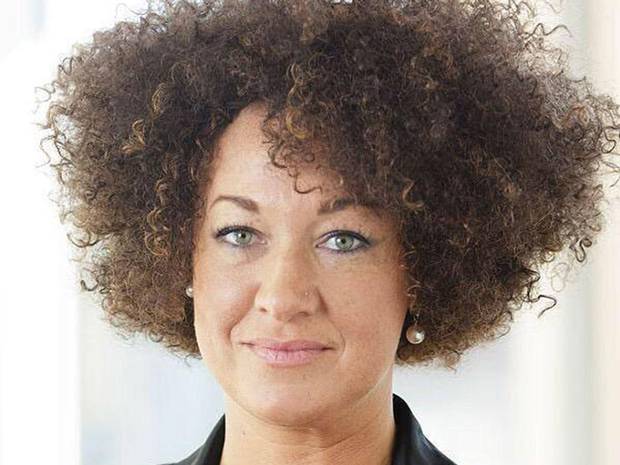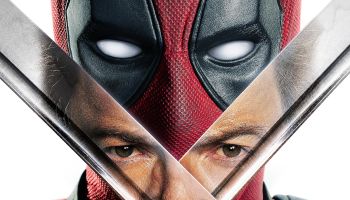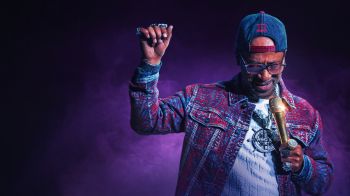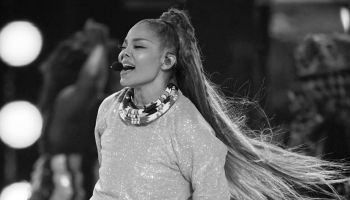
Source: Google / Getty
I’ll admit that at first I was fascinated, appalled, curious, infuriated, and challenged when Rachel Dolezal’s story emerged in 2015. Her claims of being ‘transracial’ along with her adamant claim of Blackness added an avalanche of questions to preexisting dialogues on race, culture, and transgender discussions. And it seemed like because of Rachel’s rise in culture consciousness all of a sudden mainstream media was asking complex questions about race, claiming identity, and crossing color lines.
Yes, there was (major) backlash, but there was also support from a few surprising sources. Kareem Abdul-Jabbar penned a column for Time entitled, “Let Rachel Dolezal Be as Black as She Wants to Be” where he claims she “has proven herself a fierce and unrelenting champion for African-Americans politically and culturally.” Keri Hilson referring to Black identity and culture issues, claims that Rachel’s “doing more than most of us do for ourselves.” But what’s interesting is that the majority voices of support seem to focus more on Rachel’s actions for the community versus her claim of rights to it.
But Rachel feels her claim of Blackness are in the same vein of the claims transgender people make about knowing and feeling they are born in the wrong gender. Even Whoopi Goldberg on The View made the same false assumptions based on ‘feeling as’ versus a very real biological necessity of change:
“If she wants to be black, she can be black . . . Look, just like people say, ‘I feel like a man, I feel like a woman, I feel like this.’ She wants to be a black woman, fine. Everything that comes with that she is prepared for. Okay.”
Rachel tries to drive the ‘just like transgender’ point home in her new memoir, In Full Color: Finding My Place In a Black and White World, saying:
“Just as a transgender person might be born male but identify as female, I wasn’t pretending to be something I wasn’t but expressing something I already was. I wasn’t passing as Black; I was Black, and there was no going back.”
But the problem is, she did go back. She says so herself when her husband ‘accuses’ her of being “too black” that all she had to do was untwisted her braids, use less bronzer and just stay out of the sun. Trans individual and persons of color don’t have the luxury to just stop being themselves by stripping away the evidence that they were born different. And therein lies the core of the Dolezal problem. Her ability — rather, privilege — to move through both worlds when it suits her and without consequences is a privilege being born White and heteronormative affords her — and one that she refuses to see or acknowledge.
But despite all this, I decided to read her memoir anyway, because . . . well, because I believe that we humans are complex creatures and I was honestly trying to understand where she was coming from. I picked up the book in hopes of making a connection to someone who was extremely and problematically different from me but still worthy of at least an attempt of human understanding. But even just picking up the book and glancing over the cover, I knew in my gut that this book was going to be troublesome (that the book is coauthored by a poker-playing White male says a lot even before you get to page one).
https://www.instagram.com/p/BSXQ2E3j1lv/?taken-by=racheladolezal&hl=en
And the Table of Contents, with chapter titles like Escaping to Africa (in My Head), Chicken Head Baseball & Huckleberry Stains, Emancipation, and Black Lives Matter, didn’t make me feel much better about my journey ahead. Even still as I read, I tried to keep an open mind until it was no longer possible. Because . . . well, because . . .
Because race is not a social construct for those who live with the repercussions of said ‘constructs.’
And this is where Rachel’s biological race betrays her in plain black and white; no woman of color would ever write about her experiences in this way:
“I felt less like I was adopting a new identity and more like I was unveiling one that had been there all along. Finally able to embrace my true self, I allowed the little girl I’d colored with a brown crayon so long ago to emerge.”
Or, “I could still relate to aspects so her [Miss Pittman] struggle. I certainly wasn’t enslaved…but it wouldn’t have been too much of a stretch to call me an indentured servant.”
Or romanticizing systemic racial oppression by ‘pretending to be,’ “I would pretend to be a dark-skinned princess in the Sahara Desert or one of the Bantu women living in the Congo … imagining I was a different person living in a different place was one of the few ways … that I could escape the oppressive environment I was raised in.”
Aside from Albert Wilkerson Jr. (the man she claimed was her father and who wrote the forward in the book), there is absolutely no presence of color — and definitely not of Blackness — in this book. And as the book continues, you can literally feel the desperation of someone trying way too hard to rewrite the history of her childhood and mine it for gems that will prove to the world just how ‘poor’ and ‘black’ she’s always been: from her ‘dog fur’ clothes to playing baseball with chicken heads to ‘mining’ the fields to her indentured servitude; Rachel’s entire book is drenched in Whiteness.
Because “seeing with black eyes” and rubbing mud “on [your] hands, arms, feet, and legs” isn’t the same thing as living with them.
We who live and are born in full out color or in the wrong body don’t require outside influences like National Geographic, adopted families, or books to tell us, remind us, open us up to, or reinforce who we are. We have always known because White society and mainstream culture does not allow us to forget.
And perhaps that’s what I’m most disappointed about. That Rachel, who was a professor of African American Studies at Eastern Washington University and who was a leader of a chapter of the NAACP, really missed out on opportunity to educate herself and others. She could have used her platform and her book as instances of how we all have connection to those who are marginalized and oppressed, but instead she chose — as is the privilege of Whiteness — to use all of it as a self-serving tool and proof of something that she clearly is not . . . Black.
Brandi Amara Skyy is an award-winning drag artist and writer. Find out more about her and her latest projects at brandiamaraskyy.com.
















